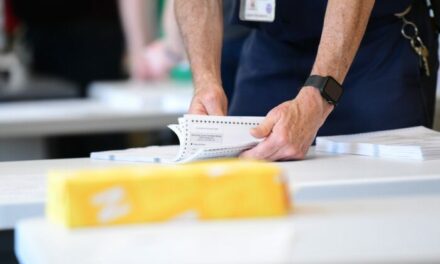We support our Publishers and Content Creators. You can view this story on their website by CLICKING HERE.
California’s Air Resources Board is meeting days after the election to consider proposals that some say could raise gas prices by 85 cents next year.
California state lawmakers, including more than two dozen Republicans, challenged the state’s Air Resources Board in an Oct. 15 letter to Chair Liane Randolph, requesting details about how proposed regulations could see the price of gas increase if they are ultimately approved and take effect in January.
“Families are already struggling with high gas prices, and they shouldn’t be left in the dark about the financial impact of new policies,” Sen. Rosilicie Ochoa Bogh said in a press release about the lawmaker concerns. “Californians deserve transparency and the chance to voice their concerns. The state’s priority must be to shield families from rising costs, not quietly advancing policies that make it harder for them to make ends meet.”
Board members are appointed by Gov. Gavin Newsom, the Senate Rules Committee, and Assembly Speaker Robert Rivas.
The proposal aims to increase stringency to reduce carbon emissions, strengthen investments in disadvantaged communities, and facilitate the expansion of the hydrogen fuel market while incentivizing low-carbon fuel production.
Critics point to calculations showing that, if approved, the changes will increase gas prices.
The Air Resources Board’s assessment last year estimated pass-through costs of between 37 cents and 47 cents a gallon by 2025, and potentially from $1.15 to $1.50 per gallon by 2031.
A letter signed by every Republican state representative was sent to the agency in May requesting the information. But the response—received on Sept. 23—from the Air Resources Board failed to answer their questions, according to the most recent request.
“[The response] continued to advance the narrative that the [fuel standards] program has minimal impact on gas prices,” the lawmakers wrote. “It is absurd that [the Air Resources Board] takes such a position when its own Initial Statement of Reasons Assessment predicted an increase in costs to consumers.”
Legislators said regulators owe it to the public to provide all relevant information regarding the potential impacts of their decisions.
“The state’s refusal to disclose the real cost of these changes is irresponsible,” Assemblyman Greg Wallis said in the press release. “Californians deserve transparency before any vote that will increase the price at the pump.”
Lawmakers are asking for details about how the amendments could affect gas prices and an analysis of direct and indirect impacts, while also urging the board to delay and reschedule the vote.
“The right thing for [the board] to do is to postpone the [fuel standards] hearing on the proposed amendments and immediately disclose the actual benefits and true costs to Californians and facilitate public participation in these important policy decisions,” the letter reads.

 Conservative
Conservative  Search
Search Trending
Trending Current News
Current News 







